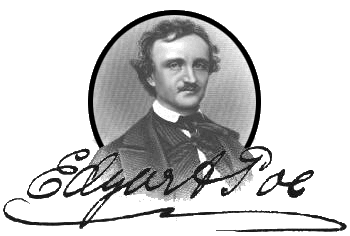The editor of the Mirror, Nathaniel Parker Willis, introduced the poem, calling it "unsurpassed in English poetry for subtle conception, masterly ingenuity of versification, and consistent, sustaining of imaginative lift...it will stick to the memory of everybody who reads it."
 |
| Image: The Edgar Allan Poe Society in Baltimore |
George Rex Graham, a friend and former employer of Poe's, had declined Poe's offer to be the first to print "The Raven." Graham said he didn't like it, but paid Poe $15.00 in charity. Graham made up for his poor decision by publishing Poe's essay, "The Philosophy of Composition" in Graham's American Monthly Magazine for Literature and Art, a year later.
